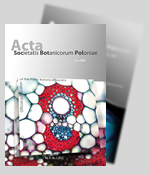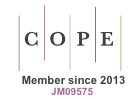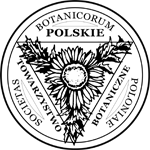Abstract
The experiments were conducted on developing triticale var. Grado caryopses. Treatment of freshly gathered, unripe triticale caryopses with abscisic acid (ABA) decreased their precocious germination throughout the entire period of development and ripening. The more mature the embryos that were germinated, the lower the inhibition by ABA. This indicates that the sensitivity of the embryo to ABA decreases during the course of caryopsis development and that the role that this hormone can play in the prevention of spouting in ears during the final stages of maturation, is limited. A known inhibitor of gibberellin synthesis, the retardant AMO-1618, was also tested in these experiments. This compound caused the reduction of germination capability only in the initial stages of development of triticale caryopses. Its most visible effect was noted during the germination of caryopses collected 30 days after flowering. The effect of this compound on the precocious germination of isolated embryos also decreased as the degree of maturity of these embryos increased. In the opinion of this author, this is connected with the fact that intense gibberellin synthesis and accumulation occurs only in the early stages of caryopsis development.
Keywords
triticale; precocious germination; AMO-1618; abscisic acid







